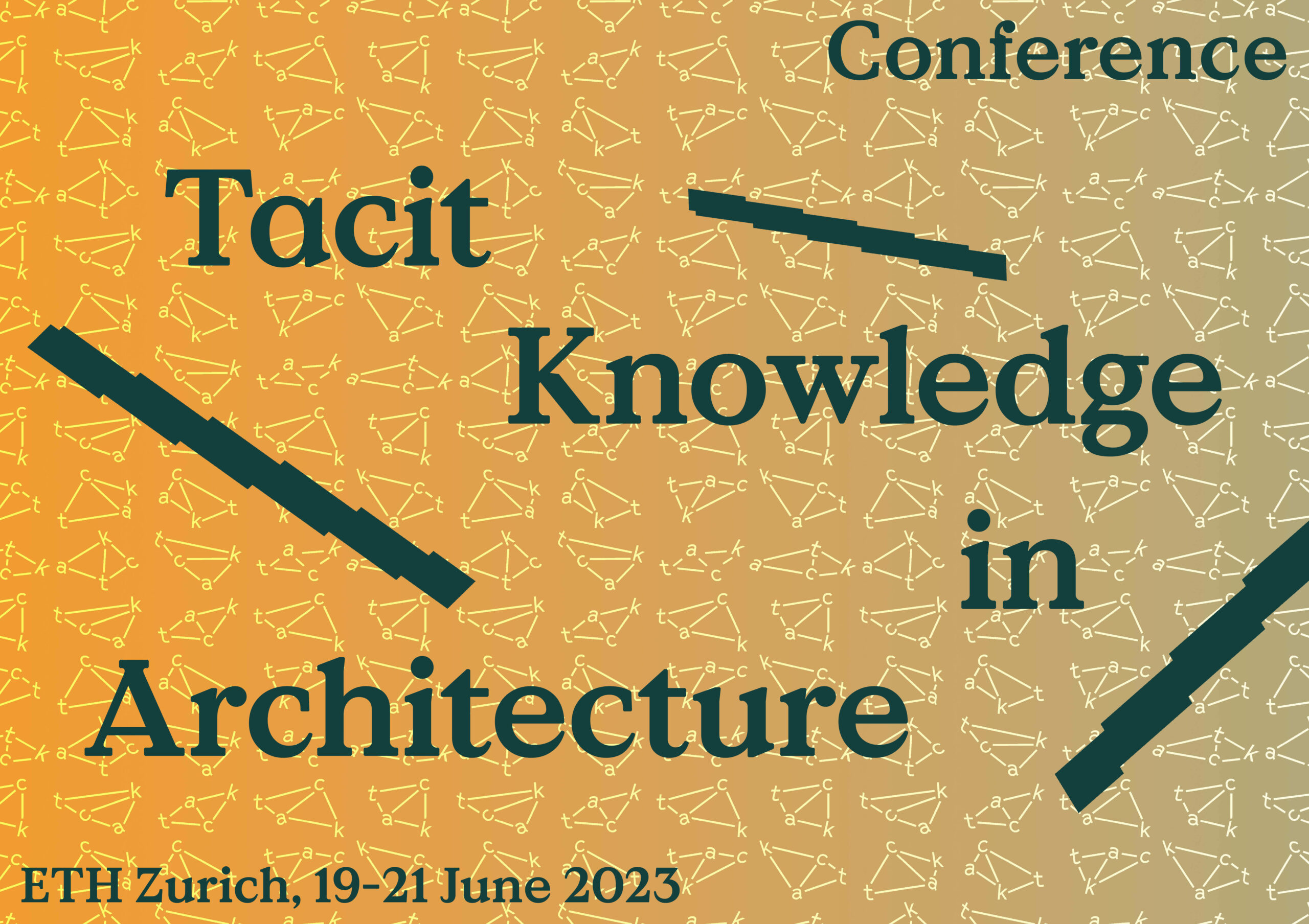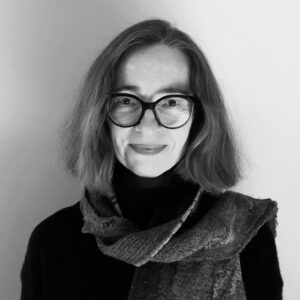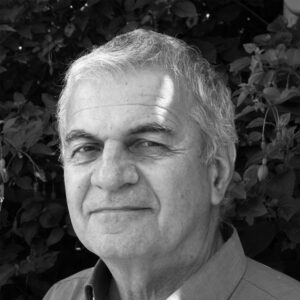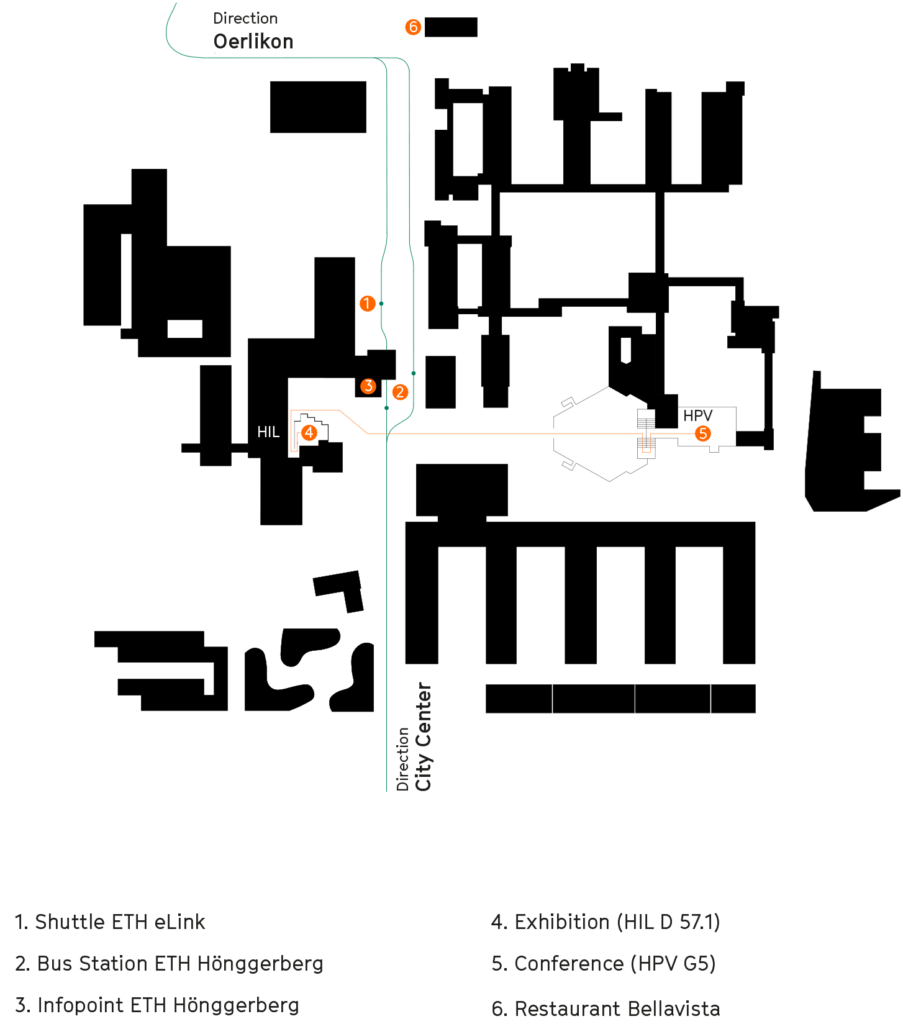Final Conference “Tacit Knowledge in Architecture”

Tacit knowledge is a key characteristic of architecture culture. It plays a central role in the conception, design, construction and appropriation of buildings and cities. It characterizes architectural education, distinguishes the cultures of design offices and typifies the collaborations between different actors, including craftsmen, engineers and architects.
Despite this central role that tacit knowledge assumes in architecture culture, our understanding of it remains limited. Research into tacit architectural knowledge has only recently gained momentum and its specificities still need further exploration. Questions as: What are the roles of tacit knowledge in architecture culture?, How does it complement other forms of knowledge?, and how does it construct cooperative communities across disciplines? still await more nuanced answers.
Against this background, the ITN ‘Communities of Tacit Knowledge: Architecture and its Ways of Knowing’ convenes a three-day International Conference at ETH Zürich (CH) between 19 and 21 June 2023, that aims to explore tacit knowledge in architecture culture. The conference will foster scientific exchange through lectures and debates, and will encompass “paper sessions” and “object sessions”, focussing on a wider range of objects of tacit knowledge such as scale models, mock-ups, plans, drawings, details, letters, digital-born objects, etc., that will be presented in the Exhibition “Unausgesprochenes Wissen/Unspoken Knowledge/Le (savoir) non-dit”.
Keynote speakers
Prof. Dr. Elke Krasny Elke Krasny is Professor for Art and Education at the Academy of Fine Arts Vienna. She is a feminist cultural theorist, urban researcher, curator, and author. Her scholarship addresses ecological and social justice at the global present with a focus on care in architecture, urbanism, and contemporary art. With Angelika Fitz, she edited Critical Care. Architecture and Urbanism for a Broken Planet together (MIT Press, 2019). With Lara Perry, she edited Curating as Feminist Organizing (Routledge, 2022). Her forthcoming book Living with an Infected Planet. Covid-19, Feminism and the Global Frontline of Care offers a cultural feminist analysis of the rhetoric of war and the realities of care in pandemic times and an introduction to feminist recovery plans for Covid-19 and beyond.
Elke Krasny is Professor for Art and Education at the Academy of Fine Arts Vienna. She is a feminist cultural theorist, urban researcher, curator, and author. Her scholarship addresses ecological and social justice at the global present with a focus on care in architecture, urbanism, and contemporary art. With Angelika Fitz, she edited Critical Care. Architecture and Urbanism for a Broken Planet together (MIT Press, 2019). With Lara Perry, she edited Curating as Feminist Organizing (Routledge, 2022). Her forthcoming book Living with an Infected Planet. Covid-19, Feminism and the Global Frontline of Care offers a cultural feminist analysis of the rhetoric of war and the realities of care in pandemic times and an introduction to feminist recovery plans for Covid-19 and beyond.
“Ways of Knowing Architecture: Resisting the Master’s Tools”
On Monday 19 June 2023, 13:15-14:15 CEST
What does architecture know? How can this knowledge of architecture be made accessible and what does this knowledge tell us about our relations to each other, to other sentient beings, to land and resources, to the planet at large? What are the tools that shape ways of knowing architecture? Starting from these questions, and acknowledging that knowledge is never singular, never neutral, and always situated and that tools are implicated in the master’s power, this lecture places ways of knowing architecture at the intersection of dimensions of tacit knowledge, hegemonic power knowledge, epistemic violence and myriad ways of rendering ways of knowing otherwise silent and invisible. In order to work towards ways of knowing architecture otherwise and to become more fully aware of how epistemic violence operates in tandem with economies based on the paradigms of extraction, exploitation, and compulsory growth, knowledge needs to become plural. Learning to listen to plural knowledges that matter to architecture, knowledges that come from the ground, the air, the water, humans and other sentient beings, will require more complex ways of engaging with what architecture knows. Learning how to listen to such plural knowledges in architecture, requires tools and methods that make such learning and listening possible. Insisting on this possibility links ways of knowing architecture to ethical and political dimensions of interdependencies, which are materialized and spatialized in designing, building, and constructing architecture. Ultimately, this lecture asks how ways of knowing architecture otherwise will and can enter into architectural education and curricula as well as into the architectural profession.
Prof. Dr. Harry Collins Harry Collins is Distinguished Research Professor at Cardiff University. He is an elected Fellow of the British Academy and winner of the Bernal prize for social studies of science. His c25 books cover, among other things, sociology of scientific knowledge, artificial intelligence, the nature of expertise, tacit knowledge, and technology in sport. His contemporaneous study of the detection of gravitational waves has been continuing since 1972 and he has written four books and many papers on the topic. He is currently looking at the impact of the coronavirus lockdown on science due to the ending of face-to-face conferences and workshops and on the role of science in safeguarding democracy.
Harry Collins is Distinguished Research Professor at Cardiff University. He is an elected Fellow of the British Academy and winner of the Bernal prize for social studies of science. His c25 books cover, among other things, sociology of scientific knowledge, artificial intelligence, the nature of expertise, tacit knowledge, and technology in sport. His contemporaneous study of the detection of gravitational waves has been continuing since 1972 and he has written four books and many papers on the topic. He is currently looking at the impact of the coronavirus lockdown on science due to the ending of face-to-face conferences and workshops and on the role of science in safeguarding democracy.
“Tacit knowledge and the locus of legitimate interpretation”
On Tuesday 20 June 2023, 13:15-14:15 CEST
I will suggest that tacit knowledge comes in three variants which are relatively easy, a bit more difficult, and impossible or near impossible to transform into explicit knowledge. The existence of tacit knowledge means that sciences are never as exact and deterministic as they were once thought to be. Scientific domains can be defined by their ‘locus of legitimate interpretation’ (LLI), the group entitled to comment on creative work. Science’s LLI is restricted to those very close to the producers; the LLI of the adventurous arts gives little emphasis to producers but much to consumers – gallery owners, newspaper critics, the general public. Architecture’s LLI has lobes of both types.
Program
Monday 19 June 2023
11:00 – 12:45
Registration desk open
12:45 – 13:15
Welcome and introduction by Tom Avermaete, Janina Gosseye, Christoph Grafe & Lara Schrijver
13:15 – 14:15
Opening lecture by Elke Krasny
Moderated by Helena Mattsson
With Françoise Fromonot, respondent
14:30 – 17:00
Paper session NATURE(S)
Chaired by Caendia Wijnbelt, Paula Strunden & Jhono Bennett
“Uncommoning: artistic knowledge in architecture”, Valerie Hoberg
“Body of knowledge | Knowing bodies”, Katharina Voigt
“Busy body: living and working in urban renewal neighbourhoods”, Soscha Monteiro
“Improvised architectural responses to the changing climate; making, sharing and communicating design processes in rural Bangladesh”, Tumpa Husna Yasmin Fellows
“ID – Integrated processes of reading and creating post-objects in digital design”, Angeliki-Sofia Mantikou and Athanasios Farangas
17:30 – 19:00
Tacit Knowledge in Architecture
Book presentation by the TACK ESRs
Moderated by Margitta Buchert & Klaske Havik
With Wivina Demeester & Christoph Grafe, respondents
19:30 – 20:30
“Unausgesprochenes Wissen/Unspoken Knowledge/Le (savoir) non-dit”
Exhibition opening with a statement by Tom Avermaete & Janina Gosseye, the exhibition curators
Statements by Kees Kaan, Elli Mosayebi, Mara Trübenbach and Angelo Lunati, exhibition contributors
20:30 – 22:00
Apéritif
Tuesday 20 June 2023
9:30 – 11:15
Object session SITE
Chaired by Hamish Lonergan, Caendia Wijnbelt & Ionas Sklavounos
“Chozos, houses of nomadic shepherds”, Markus Vogl, Alba Balmaseda Domínguez, Kyra Bullert & Špela Setzen
“Exkursionszettel”, Johanna Just
“Unpacking Hermia”, Mara Trübenbach
“Embodied knowledge: Eilfried Huth’s Eschensiedlung in Deutschlandsberg, Styria, 1972–1992”, Monika Platzer
“City as Forest”, Verena Brehm
“Reflections on the working process with clay models in early design phases”, Klas Ruin & Ola Broms Wessel
“Cylinders of soap, mud, and pottery: on cultures of making beyond architecture”, Nadi Abusaada & Wesam Al Asali
12:00 – 13:15
Lunch
13:15 – 14:15
Keynote lecture by Harry Collins
Moderated by Lara Schrijver
With Caroline van Eck, respondent
14:30 – 17:00
Paper session VECTORS
Chaired by Eric Crevels, Anna-Livia Vørsel & Mara Trübenbach
“(Un)Programming the factory: weaving panopticon stories”, Fernando Ferreira
“Constructing tacit planning knowledge: political commitment and architectural practice”, Elettra Carnelli
“Rooms: architectural model-making as ethnographic research”, Ecaterina Stefanescu
“Embodiment takes command: re-enacting Hannie and Aldo van Eyck’s homelife”, Alejandro Campos
“Revealing the tacit: a critical spatial practice based on walking and re/presenting”, Nilsu Altunok
17:45 – 19:00
Object session LINEAGES
Chaired by Paula Strunden & Ionas Sklavounos
“a Studio for Orbanism: the living archive of Luc Deleu & T.O.P. office as a source of commons for unsolicited architecture practice”, Sofie de Caigny & Tine Poot
“Tesseln and Bâtons à marques: early records of customary law”, Nicole de Lalouvière
“Architectural photography as conduit for tacit knowledge: the Heinrich Helfenstein estate at the gta Archive”, Irina Davidovici and Ziu Bruckmann
“Forêt DesCartes”, Filippo Cattapan
“Navigating, performing and book making”, Eva Sommeregger
20:00 – 22:00
Conference dinner
Wednesday 21 June 2023
9:30 – 12:00
Paper session ACTORS
Chaired by Claudia Mainardi, Filippo Cattapan & Hamish Lonergan
“Paperwork and wordcraft: institutionality at IAUS”, Alex Maymind
“Understanding the roles of tacit knowledge in the collaboration between AEC: a case study approach”, Laurens Bulckaen
“Architecture, design and judgment”, Hans Teerds
“In quest of meaning: revisiting the discourse around ‘non-pedigreed’ architecture”, Vasileios Chanis
“Dissemination of architectural culture: a view on Turkish architects’ journeys in the pre-digital age”, Ceren Hamiloglu
12:00 – 13:15
Lunch
13:15 – 14:15
TACK Web-publication presentation by Helen Thomas
With Gaia Caramellino, respondent
14:30 – 15:45
Object session SHAPERS
Chaired by Eric Crevels, Mara Trübenbach & Ionas Sklavounos
“Tacit(t)acts”, Katharina Kasinger
“Infra-thin magick: an extended reality (XR) ceremony”, Paula Strunden
“Material chariots”, Paul Vermeulen
“From copper wire to spline. Reciprocal relationships of the Analogue and the Digital”, Holger Hoffmann
“Concrete column, Pirelli Learning Centre”, Angelo Lunati
16:00 – 17:30
Roundtable and concluding discussion
Moderated by Jennifer Mack & Angelika Schnell
With Paula Strunden, Mara Trünbenbach, Hamish Lonergan & Ionas Sklavounos, session reporters, and with Boris Brorman Jensen, respondents
Paper and object sessions
The conference includes three “paper sessions” and three “object sessions”. The paper sessions will consist of 20-minute presentations followed by a short discussion moderated by the session chair. The object sessions are based on the contributions presented in the exhibition “Unausgesprochenes Wissen/Unspoken Knowledge/Le (savoir) non-dit”. After 10-minute presentations of the contributions, speakers of the object session will engage in a 25-minute discussion with their panel, moderated by the chair. All speakers are invited to present slides in both types of sessions.
Key Dates
Calls for Papers and Objects opened on 1 September 2022 and closed on 23 October 2022
First submission of full papers by 30 March 2023
Submission of revised papers by 1 June 2023
Conference from 19 to 21 June 2023
Final paper submission for TACK platform by 30 June 2023
Registration
Registration will close on 18 June 2023. Please register here.
Venue
Auditorium HPV G5
ETHZ campus Hönggerberg
Stefano-Franscini, Platz 5
8049 Zürich

Conference booklet
You can find the digital version of the conference booklet here.
Practical Information
Shuttle
The ETH eLink shuttle bus travels between the Zürich city centre (ETH Zentrum Campus and Haldenegg) and the ETH Hönggerberg campus multiple times per hour. The first services in the morning (from 7:06 am) through to the final services in the evening (until 6:54 pm) depart from and terminate at Zürich Central Station, allowing passengers to connect with train services. This shuttle bus service is available to students, employees and guests of ETH Zürich free of charge.
WIFI
External guests visiting ETH Zürich can access the ‘public’ or ‘public-5’ WIFI. Access is provided via registration with a mobile number:
1. Use your mobile phone to establish an internet connection using the ‘public’ or ‘public-5’ WIFI
2. Enter your phone number and accept the terms of use
3. Click on ‘Request Access Code’ to request a code
4. An SMS will be sent to the given device. This will contain your access code
5. Enter the code in the ‘Your Access Code’ field
6. Click ‘Submit Registration’. You will now be connected to the internet.
You can register a maximum of three devices with the same mobile number.
